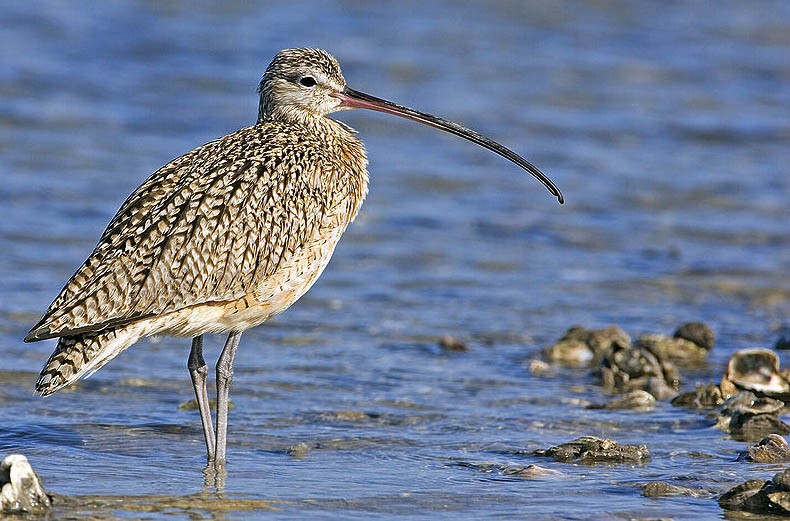
The curlew whose dwindling numbers have experts worried.
A last ditch attempt to save the curlew from extinction in Donegal has been launched by the National Parks and Wildlife Service.
The wildlife authority has just begun a recruitment drive for ‘Curlew Advisory Officers’ to work with communities and landowners.
The move follows the launch in 2017 of the Curlew Conservation Programme, set up to try and stifle the rapid decline in bird numbers.
In Ireland 30 years ago studies reported there to be in excess of 5,000 curlew nests across Ireland.
That has now shrunk to below 150 in recent years – a decline of 96 per-cent.
Experts fear that without immediate action, the species could be wiped out in Ireland within five to ten years.
In a bid to reverse the alarming trend, the National Parks and Wildlife Service (NPWS) has pinpointed seven specific locations – Donegal, North Leitrim, North Roscommon, Lough Corrib in Galway, Stacks Mountains in Kerry, North Monaghan and Lough Ree.
There Curlew Advisory Officers will conduct surveys and engage local people on conservation efforts.
Appealing for applicants, the NPWS says, “The Eurasian curlew is of serious conservation concern.
“Breeding productivity is so low that population viability analysis predicts that in the absence of any action, the curlew will go extinct as a breeding species in Ireland with five to ten years.”
The decline in curlew numbers comes weeks after wildlife experts voiced concerns over another bird species – the corncrake.
A recent survey of corncrake numbers revealed that in 2017 fewer than 100 calling males were recorded on Donegal’s mainland and its islands. Such has been the dilapidation in Ireland’s corncrake population, the bird is now only found in three areas – Donegal, Mayo and Connemara.
Dr Anita Donaghy is a Donegal-based Project Officer with BirdWatch Ireland.
She said the decline in curlew numbers had been flagged up to the government as far back as 2012 but that they had failed to act on the warnings.
Dr Donaghy welcomed the fact that steps to save the species from extinction were now being taken but questioned whether it was a case of too little, too late.
“Very belatedly the government has taken some action,” Dr Donaghy said.
“BirdWatch Ireland first wrote to the government in 2012 and even then there would have been 300 nesting pairs. But nothing was done until 2015/16 when then minister Heather Humphreys, and again only after significant pressure, set up a curlew taskforce to try and bring in all the stakeholders and come up with some solution to halting this decline. This Curlew Conservation Programme is part of that.”
Dr Donaghy said that with the right attitude and resources, there was still time to save the curlew from disappearing from the Irish wildlife landscape. She said that on past experience, those tasked with conserving the bird were highly dedicated to the cause.
But the resources being afforded to them may not be enough, she warned.
“We are still in time to save it from extinction in Ireland but only if enough resources are put in. A massive effort is needed and to be honest, the measures being proposed are the bare minimum. Will it be enough to reverse this decline, I don’t know.
“No one wants to see curlews disappear and the teams are very dedicated. It is great that this programme is being rolled out but only time will tell if it is enough,” added Dr Donaghy.
Posted: 2:00 pm March 3, 2018









